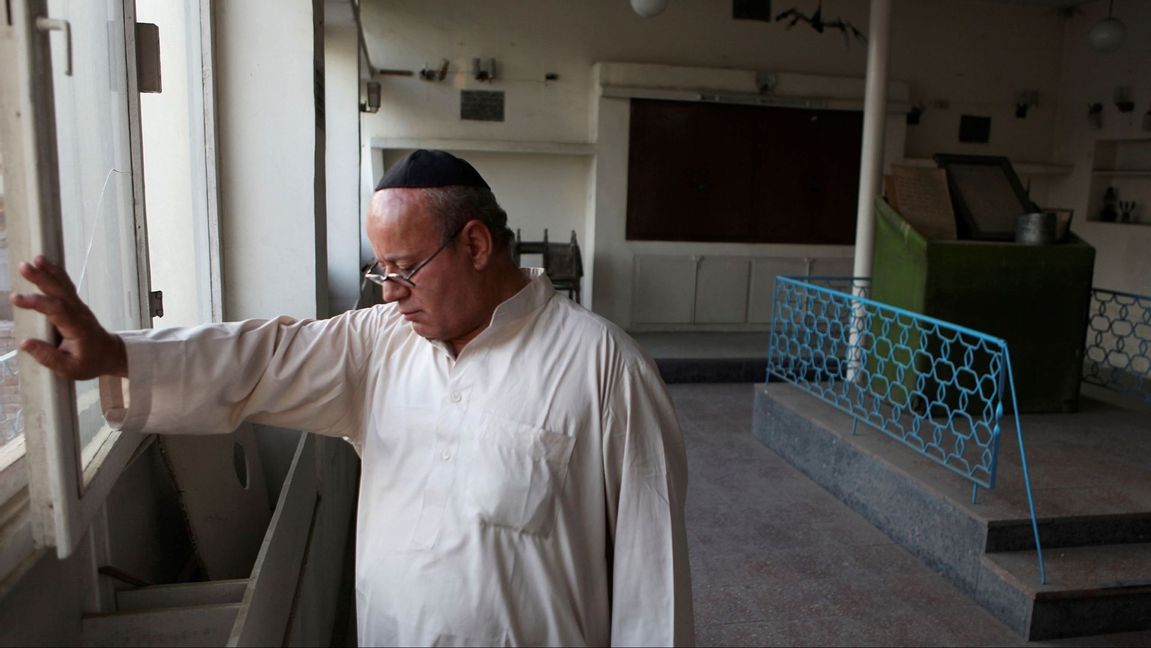
KABUL, Afghanistan (AP) — The last member of Afghanistan’s Jewish community has left the country.
Zebulon Simentov, who lived in a dilapidated synagogue in Kabul, kept kosher and prayed in Hebrew, endured decades of war as the country’s centuries-old Jewish community rapidly dwindled. But the Taliban takeover last month seems to have been the last straw.
Moti Kahana, an Israeli-American businessman who runs a private security group that organized the evacuation, told The Associated Press on Wednesday that the 62-year-old Simentov and 29 of his neighbors, nearly all of them women and children, have been taken to a “neighboring country.”
Kahana said Simentov, who had lived under Taliban rule before, was not worried about them. But Kahana warned him that he was at risk of being kidnapped or killed by the far more radical Islamic State group. He said Simentov’s neighbors also pressed him to leave, so that their children could join him on the bus out.
Israel’s Kan public broadcaster aired footage of the evacuation, showing a bus full of people traveling across what appeared to be Afghanistan, with all the faces blurred except for Simentov’s.
They joined an exodus of tens of thousands of Afghans who have fled since the Taliban swept across the country last month. The U.S. and its allies organized a massive airlift in the closing days of the 20-year-war, but officials acknowledged that up to 200 American citizens, as well as thousands of Afghans who had aided the war effort, were left behind.
Kahana said his group is reaching out to U.S. and Israeli authorities to find a permanent home for Simentov, whose estranged wife and children live in Israel. For years, Simentov refused to grant his wife a divorce under Jewish law, which could open him up to legal repercussions in Israel. Kahana said he persuaded him to grant the divorce and has drawn up the paperwork.
“That was two weeks of being a shrink, a psychiatrist, talking to him like 10 times a day, and his neighbor at the same time to translate,” Kahana said.
Hebrew manuscripts found in caves in northern Afghanistan indicate a thriving Jewish community existed there at least 1,000 years ago. In the late 19th century, Afghanistan was home to some 40,000 Jews, many of them Persian Jews who had fled forced conversion in neighboring Iran. The community’s decline began with an exodus to Israel after its creation in 1948.
In an interview with The Associated Press in 2009, Simentov said the last Jewish families left after the 1979 Soviet invasion.
For several years he shared the synagogue building with the country’s only other Jew, Isaak Levi, but they despised each other and feuded during the Taliban’s previous rule from 1996 to 2001.
At one point, Levi accused Simentov of theft and spying. and Simentov countered by accusing Levi of renting rooms to prostitutes, an allegation he denied, The New York Times reported in 2002. The Taliban arrested both men and beat them, and they confiscated the synagogue’s ancient Torah scroll, which went missing after the Taliban were driven from power in the 2001 U.S.-led invasion.
When his 80-year-old housemate died in 2005, Simentov said he was happy to be rid of him.
Reporters who visited Simentov over the years — and paid the exorbitant fees he charged for interviews — found a portly man fond of whiskey, who kept a pet partridge and watched Afghan TV. He observed Jewish dietary restrictions and ran a kebab shop.
Born in the western city of Herat in 1959, he always insisted Afghanistan was home.
Samir Khan, a neighbor who runs a small grocery store and had known Simentov for the last 10 years, said he disappeared about a week and a half ago. Khan said he only learned of Simentov’s departure when he saw it on social media.
The Taliban, like other Islamic militant groups, are hostile to Israel but tolerated the country’s miniscule Jewish community during their previous reign. Aside from the feud, the only other time they came knocking was when they noticed that Muslim women in all-encompassing burqas could often be seen visiting Levi.
When they briefly arrested Levi, he explained that he had a business selling amulets to women who wanted to become pregnant with sons or who were opposed to their husbands taking other wives, as allowed under Islamic law.
The Taliban released him.
___
By Muhammad Farooq and Joseph Krauss. Krauss reported from Jerusalem.
See also: US-built databases a potential tool of Taliban repression
See also: Explainer: Resistance leader’s death deepens Kashmir strife